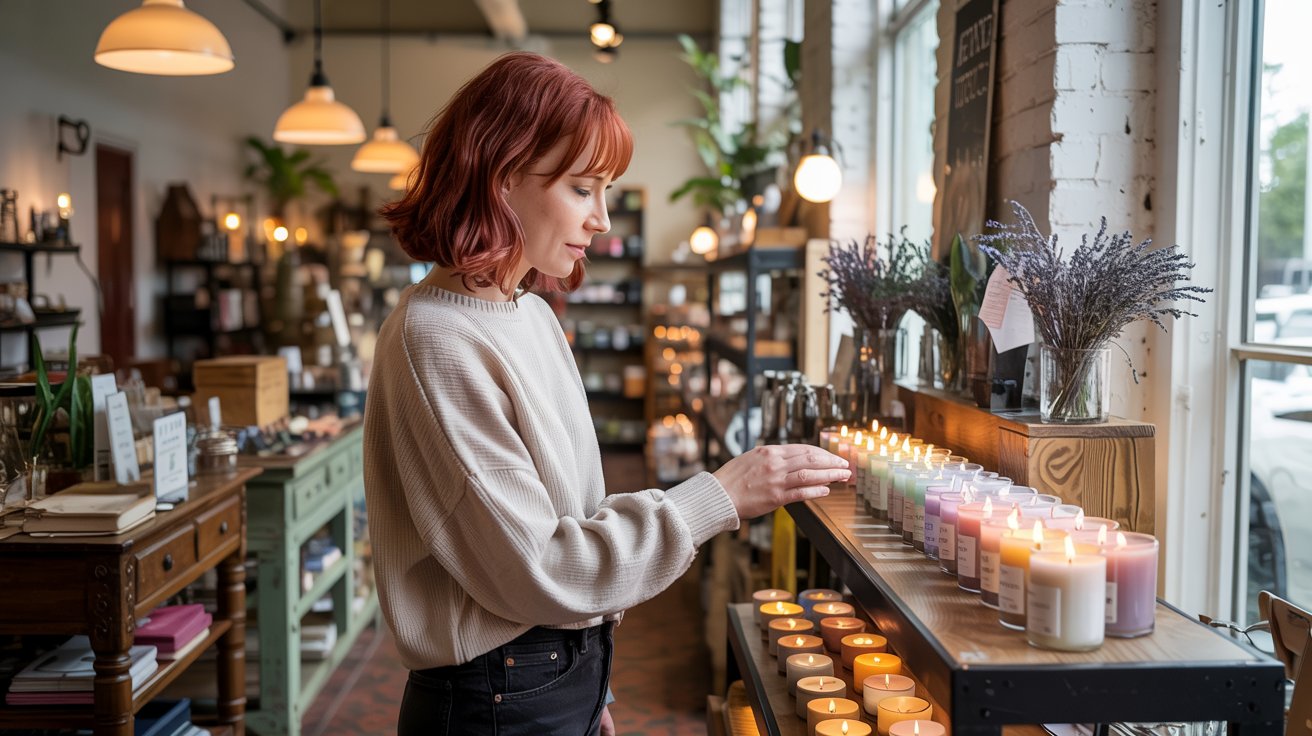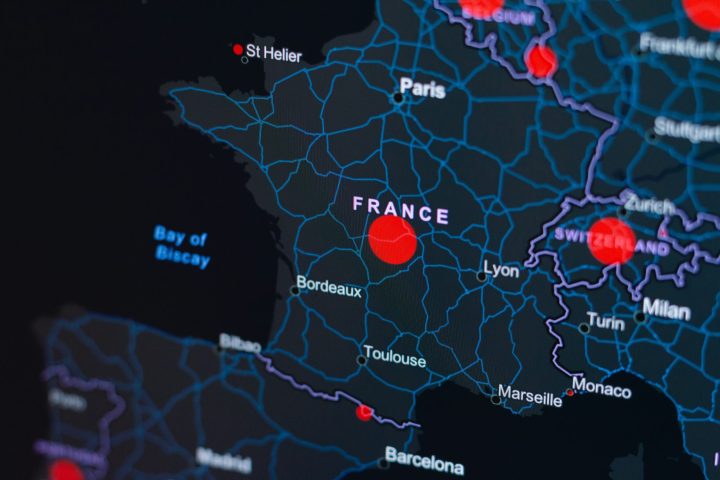Top private label brands in Germany: why online retailers create their own products?
Written by
Kinga EdwardsPublished on
Here are the top private label brands in Germany. Learn why online retailers are creating their own products.

Selling someone else’s product used to be enough. But not anymore. More and more online retailers in Germany are making a big shift: they’re creating their own brands.
From skincare and snacks to fashion and home goods, private label brands in Germany are taking up more space on the digital shelf and winning customer trust.
They want to own the story, shape the experience, and build something that no one else can copy. And with private labels in Germany making up 39% of retail sales in 2025, the opportunity is too big to ignore.
So what’s driving this growth? Let’s unpack what private labels really are and why they’re booming right now.
What are private labels and why are they rising in Germany?
Private labels are products sold under a retailer’s name but made by a third-party manufacturer. You’ve seen them everywhere: Balea by dm, Cien by Lidl, Even&Odd on Zalando. They’re brands in their own right – designed, marketed, and trusted.
And in Germany? They’ve become part of everyday life.
Grocery chains, beauty retailers, and e-commerce giants are all building their own lines, and customers are loving the mix of affordability, quality, and convenience. Now you can buy from premium natural beauty products to organic pantry staples as private label brands in Germany have evolved far beyond the basic “no-name” labels of the past.
And there’s a reason why retailers are doubling down. Private labels:
- give them better profit margins,
- control over pricing,
- and full ownership of how the product looks, feels, and performs.
They’re not dependent on outside suppliers or name brands and they can respond to trends faster, launch limited-edition drops, and build loyalty through exclusive lines. But we will talk about it more later.
For customers the benefits are clear. Private labels in Germany are known for delivering high quality at a fair price (and yes, they often match or exceed national brands).
With cleaner packaging, shorter ingredient lists, and a focus on sustainability, it’s no wonder shoppers are making the switch.
Companies with top private label brands in Germany (2025 snapshot)
Private label brands in Germany have come a long way. In 2025, a few companies stand out for how well they’ve done it. Let’s meet the ones that made private labels feel… kind of iconic.
Note: The below companies have a lot of private label brands. We will mention only a few, most popular ones.
dm
dm (Drogerie Markt) is a favourite drugstore chain across Germany. It carries beauty, wellness, baby, and household needs in one spot. Customers trust it for reliable quality and fair prices. dm keeps things simple, friendly, and practical.
dm’s private label brands are:
Balea
Balea offers skincare and personal care essentials. Creams, cleansers, hand lotions—all at wallet-friendly prices. Customers rave about quality. Reviews often say Balea matches or beats high-end brands for a fraction of the cost. dm launched Balea in 1995, and now it’s a staple in every bathroom cabinet.
Alverde
Alverde is dm’s natural cosmetics line. Plant-based and eco-aware. It has a loyal following – people love that it feels clean and earth-friendly. It’s consistently a top choice in independent tests.
Denkmit
Denkmit is the cleaning hero: offers laundry, home, and kitchen products. Users trust it to do the job, without extra chemical fuss. It keeps your home fresh while being budget-conscious.
Lidl
Lidl is Germany’s big discount supermarket, with over 12,500 stores under the Schwarz Group. About 80% of its goods are private labels. It offers solid quality at unbeatable prices.
Lidl’s private label brands are:
Cien
Cien is the beauty line. Shampoos, creams, body wash. Tests show Cien sometimes beats mid-range brands like Lancôme, while costing a fraction. That boosts National pride—quality without spending.
Milbona
Milbona is all about dairy: yoghurts, milks, cheeses. It delivers freshness and taste that stands up next to national brands, frequently topping taste tests in local stores.
Deluxe
Deluxe is Lidl’s premium food range. Chocolates, fine meats, ready meals – it’s indulgent and still affordable. Perfect for shoppers who want a little luxury without splurging.
Aldi
Aldi is the OG discounter—simple, strong private label focus. Not flashy, just effective and dependable.
Aldi’s private labels in Germany are:
Milsani
Yoghurts and dairy again, Milsani nails freshness and taste while keeping prices low. It sits right next to big-dairy brands but beats them in value.
GutBio
GutBio is Aldi’s organic line. It’s proof that high standards don’t require high prices. Customers grab this for trustworthy, eco-friendly grocery buys.
Choceur
Choceur is Aldi’s chocolate range. Award-winning dark varieties like Moser Roth are both premium-inspired and affordable, competing with luxury tables.
Zalando
Zalando started as a shoe site, then turned into a style empire. Its private labels target modern shoppers with fast-fashion sensibilities.
Zalando’s private label brands are:
Even&Odd
Even&Odd serves everyday fashion and party wear. It’s affordable and trend-led. Perfect for quick style refreshes.
Zign
Zign focuses on footwear. Shoes, bags, belts – it offers clean style, fair prices. It resonates with people who shop often but don’t want to overpay for quality.
Pier One
Pier One brings a smart-casual, masculine edge. It brings together fashion and function. And it’s ideal for guys who want style without splurge.
Amazon
Amazon’s private labels target daily essentials—electronics, home items, food. They’re available in every corner of Germany.
Amazon’s private label brands are:
Amazon Basics
Amazon Basics is one of Amazon’s earliest private label brands. Chargers, cables, kitchenware – it offers everyday household goods.
Solimo
The Solimo line includes items like bedding, cookware, kitchen accessories, nuts and dry fruits, home decor, travel bags, and mobile accessories. It’s positioned as a convenient option for consumers seeking value.
Happy Belly
Happy Belly focuses on food and drinks – nuts, spices, breakfast items. It cuts through the clutter with one-word, happy-sounding names and simple packaging.
Rossmann
Rossmann is packed with private labels, and customers love them because they’re consistent and easy to trust. It has around 30 private labels and 4,600 items, and personal care is a top category.
Rossmann’s private labels in Germany are:
Isana
Isana is Rossmann’s hit personal care line: think shampoos, body lotions, and soaps. It delivers solid quality at affordable prices. Many fans say it’s a trusted everyday staple. It feels like a beauty secret that everyone’s sharing.
Alterra
Alterra offers a natural cosmetics line. Made with organic ingredients and packaged responsibly. It focuses on gentle, clean skincare. It’s for people who want eco-friendly care without premium prices.
For Your Beauty & Prokudent
These two lines focus on self-care essentials. For Your Beauty offers affordable hair and body items. Prokudent covers dental and oral hygiene with reliable, everyday products.
Douglas
Douglas is playing the long game with private labels. These products feel premium but approachable. You know the formulas are reliable, the prices are okay, and you won’t regret adding one to your basket.
Douglas’s private label brands are:
Douglas Home Spa
Douglas Home Spa features products inspired by global cosmetic traditions. They let you relax at home at quite a small cost. Products available also include items like candles. They also offer discounts and free samples.
NOCIBÉ
Douglas operates in France under the Nocibé name. The brand was established in 2014. It sells cosmetics, skincare, and fragrances, in hundreds of stores in France.
Parfumdreams
Parfumdreams is an e-commerce brand owned by the Douglas Group. Douglas acquired a majority stake in Parfümerie Akzent, the owner of Parfumdreams, in 2018. Parfumdreams focuses on online sales of beauty products.
Kaufland
Kaufland keeps it practical. Their K-Classic and K-Bio brands cover pretty much every grocery need: from milk to pasta to toilet paper. Their private labels make it easy for busy families to stock up without overspending – or second-guessing what’s in their food.
Kaufland’s private labels in Germany are:
K-Classic
K-Classic is the backbone of Kaufland’s private label lineup. You’ll see the red-and-white packaging across every aisle: milk, yogurt, snacks, cleaning products, even batteries. The formulas and flavors are solid, and the price point hits that sweet spot where you don’t need to compare ten brands.
K-Bio
Organic, but make it accessible. K-Bio is Kaufland’s answer to shoppers looking for better ingredients without jumping into premium pricing. Think organic cereal, baby food, flour, even juices – all with EU Bio certification.
K-take it veggie
This is Kaufland’s vegan/vegetarian line, and it’s surprisingly creative. You’ll find plant-based schnitzels, tofu, vegan spreads, and even dessert options. The growth in this line mirrors what’s happening across Germany: meat alternatives are no longer niche.
Why these brands matter
- They’re easy to find online and known by name.
- They match or beat national brands in quality. Think Balea shampoo that feels luxe, or Cien cream that rivals premium lines.
- They carry retailer values: dm’s vegan promise, Lidl’s sustainable cans, Aldi’s organic affordability, Zalando’s ethical fashion.
- They simplify shopping. These lines cut clutter and offer trusted choice, just enough and just right.
Why online retailers are leaning hard into private labels
Let’s talk money first. When it comes to doing businesses, margins matter. Selling other people’s products means splitting the profit. But with private labels? That money stays in-house. No middleman markups. No paying for someone else’s logo. You set the price. You own the profit. That’s a big win, especially when every cent counts.
There’s also the magic of being unique. No one else can sell that exact shampoo, hoodie, or pack of granola bars. That’s better control. You’re not one of ten listings on a crowded product page. You’re the product. That makes it easier to stand out, build trust, and keep customers coming back.
Now here’s the part national brands don’t have – direct customer data. Retailers know what’s in the cart. What gets left behind. What price makes people click “buy now.” That kind of insight is gold. It means private labels aren’t guesses. They’re built on real behavior. If a product flops, you tweak it. If people love it, you scale it.
German retailers are already way ahead here. Chains like Lidl and Aldi stock mostly their own labels. Not hundreds of brands per category. Just a few strong options. And it works. Why? Because choice fatigue is real. People don’t want 18 types of tomato sauce. They want two good ones that don’t cost a fortune.
This strategy cuts through the noise. Reducing product variety actually improves satisfaction. When people don’t feel overwhelmed, they make quicker decisions. And they feel better after. No second-guessing or regret. Just “yeah, I picked the right one.”
What German consumers expect from private labels today
In short: value + quality.
- Cheap isn’t enough anymore. German shoppers still care about price, but only if it comes with solid quality. That’s the new baseline.
- They’re also paying attention to how things are made. Ethical sourcing, fewer chemicals, less plastic. Labels like “organic” or “vegan” are expected.
- Premium private labels are having a moment. Wellness supplements, fragrance-free skincare, and organic baby food. Even in fashion, where Zalando’s own brands are stepping into luxury.
- The big shift? Trust. Often, private label brands in Germany aren’t just a second choice. For many, they’re the go-to. Reliable, clean, better value.
Challenges of launching private labels online
One more thing. Private labels sound like a dream, but they’re not plug-and-play. They come with some challenges.
First, quality control. You don’t get a second chance online. One bad review, and it’s out there forever. Retailers need to test, tweak, and be absolutely sure the product delivers.
Then comes branding from scratch. No one knows your label yet. You need a strong name, a look that pops, and a story that makes people care. It takes time to build that from zero.
Supply chain? That’s a whole beast on its own. Finding the right manufacturer is one thing. But managing shipping, stock levels, returns? That’s daily work, not a one-time setup.
You’re also not launching into a vacuum. Big national brands already own the top search spots. Their ads, SEO, and brand loyalty? Hard to beat. Your label has to fight for visibility.
And don’t forget the D2C crowd. Small niche brands are fast, fun, and all over TikTok. They feel personal. Authentic. That’s who you’re up against—and shoppers notice.
So yeah, private labels in Germany win big when done right. But getting there takes work, patience, and a lot of smart decisions.
Conclusion
The message is simple: one of the ways to stand out in 2025 is not just to stock the shelf, but to own it.
Private label brands in Germany aren’t a backup plan. When retailers create their own labels, it’s more like a part of their strategy, a smart move. Better margins, better control, fewer returns, stronger loyalty.
And for customers? It’s easier, cheaper, and sometimes—shockingly—better quality.
If you’re selling online, it’s worth thinking about your own label. Just go in with your eyes open. Know your audience. Get the product right. And don’t rush the branding.
***


